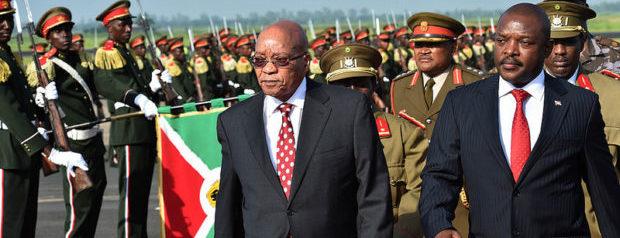Lethal Violence in Darfur: September
The UNAMID monitoring data for violent fatalities in Darfur recorded a sharp increase in September. The usual caveats apply to the figures: they are based upon reports from multiple but probably incomplete sources. The Sudan Government continues to give UNAMID incomplete freedom of movement and despite improved access to some rebel-held areas, UNAMID’s ability to investigate reports from SLA-held areas is far from complete.
The total number of violent deaths recorded was 102. In contrast to the three previous months, armed conflict rather than crime was the major cause of violent deaths in the month. The largest number of fatalities (69) were in South Darfur, mainly due to two deadly inter-tribal clashes, namely Rizeigat versus Maaliya (17 September) and Fellata versus Habbaniya (22 September), which between them caused 38 deaths. Both these fights were caused by cattle theft. In addition, a fight between Rizeigat and Saada reportedly led to as many as one hundred injuries. This was sparked by the deaths of four police officers in a dispute. These incidents represent the most serious intra-Arab fighting since March, when approximately thirty people were killed.
Twenty-four fatalities were reported in North Darfur. Of these, 22 arose from the attack by the Sudan Government and related militia on SLA positions in Korma. The majority of those killed were SLA fighters. To date, UNAMID has not been able to visit Korma to confirm the figures, which may therefore rise. (Though it is also possible that an investigation might lead to a downward revision of the numbers, as often happens.) The Korma offensive appears to be related to the concentration of Chadian opposition groups in Umm Shaddiq, where they have been relocated after their removal from the border area.
Crime has not diminished. A total of 56 cases of armed banditry were recorded, the highest for four months. Eleven were attacks on UN and UN-affiliated personnel. In el Geneina, one Nigerian UNAMID soldier died in the course of a carjacking operation and two Kenyan military policemen were injured. September also saw a sharp rise in carjacking, with twelve vehicles stolen at gun point and one failed attempt. This is the worst month since April (when 16 were stolen). However, six of these vehicles were recovered by the Sudanese police, suggesting that the police may be becoming more capable or more willing to pursue hijackers.





Every month I think that the UNAMID numbers must be missing at least a few incidents. This month one is missing for sure.
One mysterious disappearance is missing from the UNAMID total. A certain Hussein “Abu Sharati†vanished in unexplained circumstances at the end of last month. “Abu Sharati†would have been the first to point out that these figures are an undercount, and that the increase shows that Darfur is a “high intensity conflict.â€
Is this report available for the public?
Still deaths resulting from violence between the Government and rebels are still low, and it is arguable that inter tribal fighting would have occurred regardless of whether there was a rebellion in Darfur or not.
Also while there has been a clear spike in violent deaths from previous months, this month is still significantly less deadly then the average month of 2008.
Jibreel I go by the safe assumption that UNAMID must record at least half of the violent incidents in Darfur and by this assumption Darfur would still technically be defined as a low intensity conflict.
Dear Cady
the reports are not (yet) available in the public realm. I am encouraging UNAMID to make these figures and the reports on which they are based, public. This would be in accordance with the DPA and also a service to the Sudanese people.
Dear Mohanad,
my point was a saracastic reference to the unmasking of mr. “Abu Sharati” as an Abdal Wahid spokesman in disguise. Now we won’t hear from him again. There has only been skirmishing in Darfur in recent years and the Korma fighting is because of the Chadian Opposition being moved away from the boarder which will decrease the fighting still more.
sincerely, Jibreel
sorry Jibreel I had miss understood you